When it comes to outdoor adventures, large breeds often get the spotlight. But many small dog breeds are just as ready to hit the trail. With surprising endurance, agility, and bold personalities, these compact companions can make excellent hiking partners.
Several small breeds were originally developed for tasks that required stamina, such as hunting, herding, or navigating rough terrain. These traits still shine through, even if the destination is now a forest trail rather than a farm or quarry. Their smaller size also comes with perks: they’re easier to carry if needed, require less food and water, and are better suited for travel and compact vehicles.
While not every small dog enjoys long hikes or uneven trails, many take naturally to outdoor exploration, especially when properly trained and conditioned. Breed temperament, energy level, and physical structure all play a role in determining trail-readiness.
Below is a carefully curated list of small but mighty breeds that thrive on hiking adventures. Whether trekking through the mountains or enjoying a weekend nature walk, these dogs prove that a love of the outdoors isn’t limited by size.
Small Dog Breeds That Are Great for Hiking
1. Miniature Pinscher
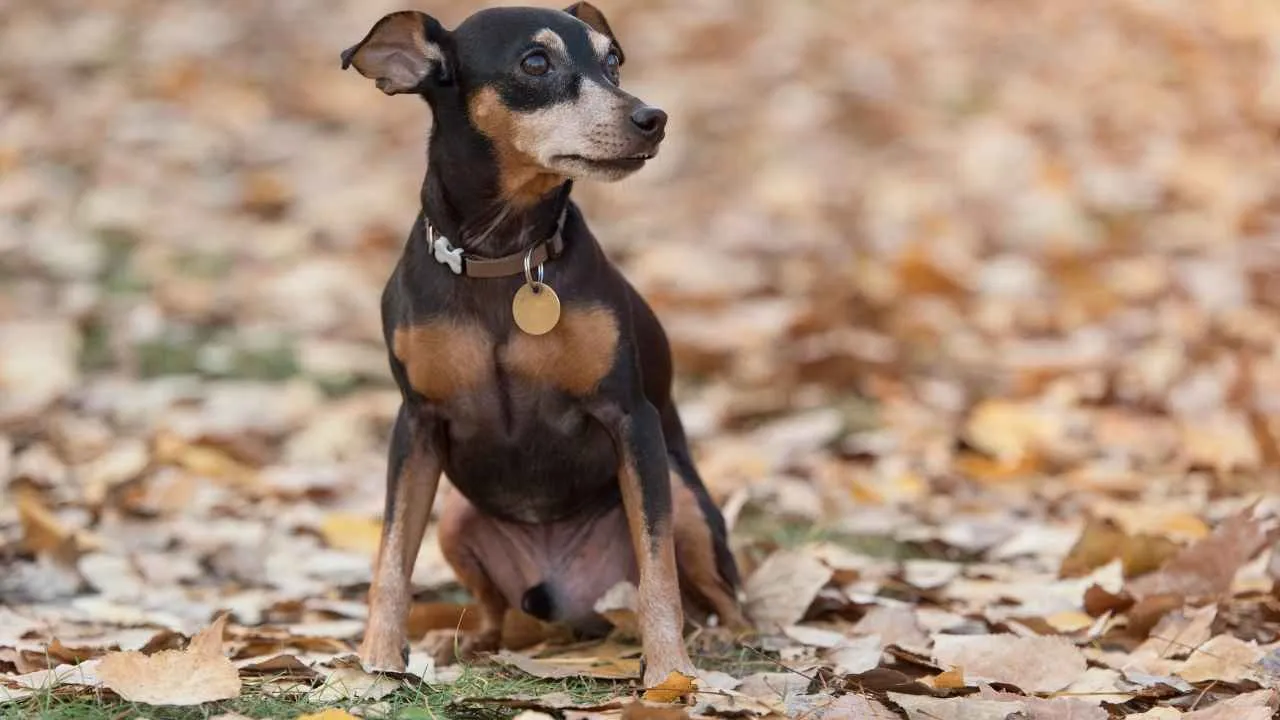
Don’t let the Miniature Pinscher’s size fool you; this little dog is a powerhouse of energy. Originally bred in Germany for hunting vermin, the “Min Pin” was never just a lapdog. With its sleek, athletic body and confident gait, this breed thrives on activity and purpose, making it a surprisingly solid hiking partner for those who can match its spirited pace.
Miniature Pinschers need daily mental and physical stimulation, and the trail offers both. They may be small, but they approach every walk like an expedition. These terriers are alert and highly aware of their surroundings, often reacting quickly to sounds or movement in the underbrush, so a sturdy harness and leash are essential for safety.
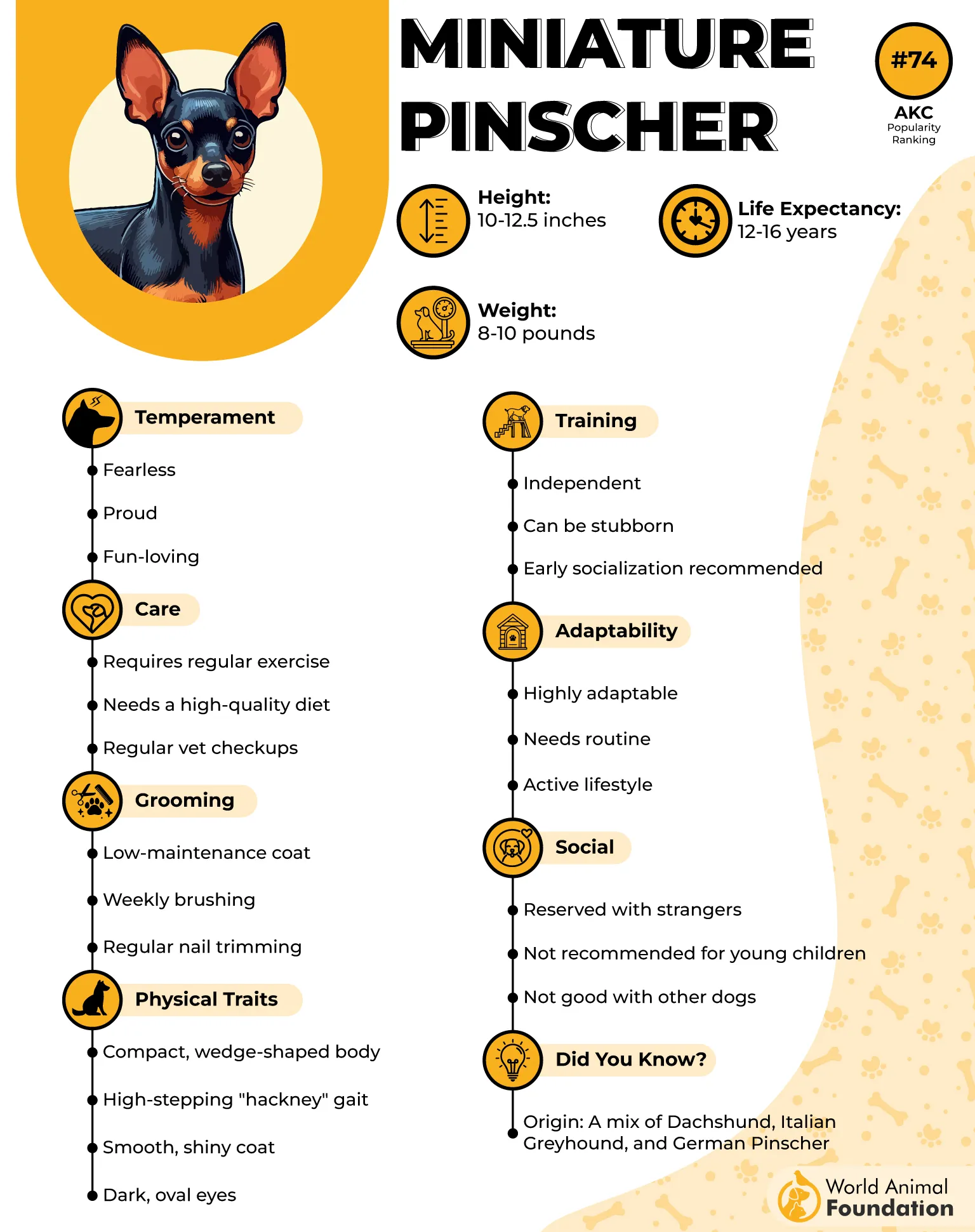
The breed’s independent streak can make recall training a challenge, so Min Pins do best in on-leash hiking environments. They can be suspicious of strangers and strange dogs, which makes socialization on the trail just as important as physical conditioning.
Their short, smooth coat makes grooming simple, but also means they’re more sensitive to temperature extremes. Bring along a lightweight jacket for cooler hikes and avoid peak heat hours to keep them comfortable and safe.
Fun Fact:
The Min Pin’s signature “hackney gait”, a high-stepping trot, is inherited from its horse-showing namesake, the Hackney horse!
2. West Highland White Terrier
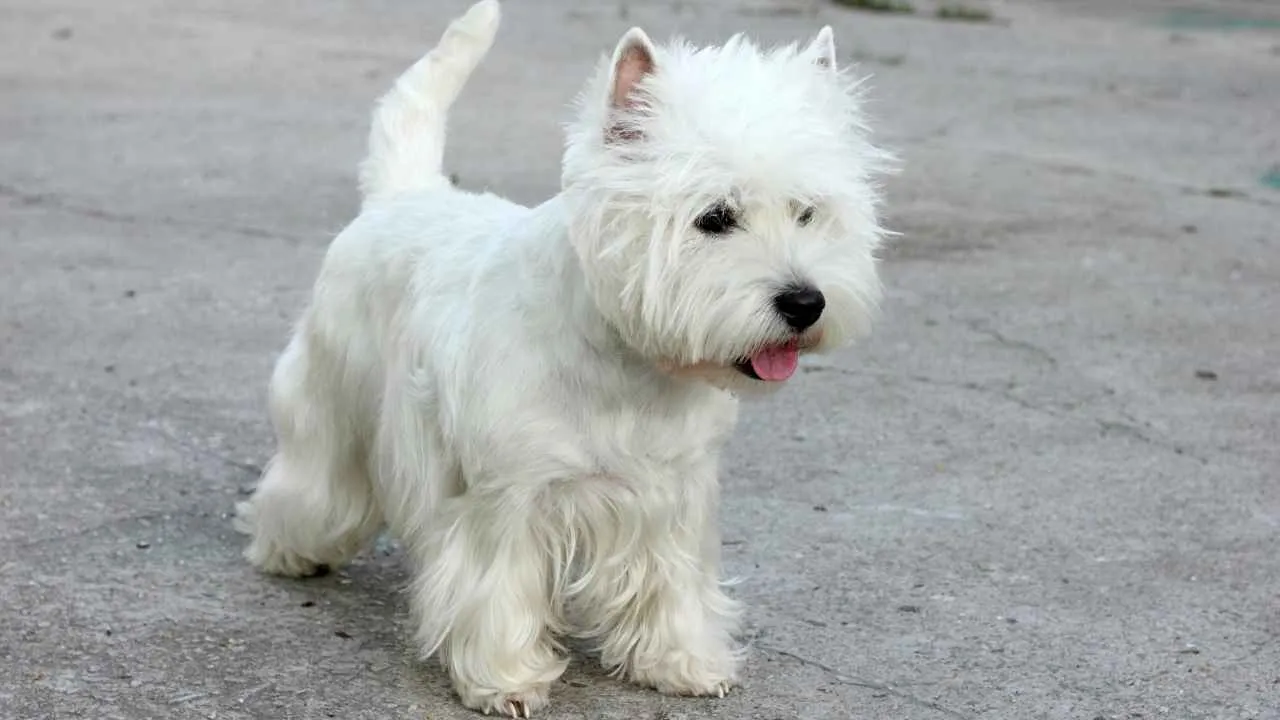
The West Highland White Terrier, or “Westie,” may look like a fluffy indoor companion, but its roots lie in the rugged terrain of the Scottish Highlands. Bred to chase rodents and dig through rough ground, this terrier combines toughness with charm and can be a surprisingly hardy trail companion.
Westies are tenacious and independent, qualities that once made them formidable hunters and now serve them well on long walks or uneven terrain. While they may not be built for speed, their determination ensures they’ll keep up with the pack, even if it’s uphill both ways.
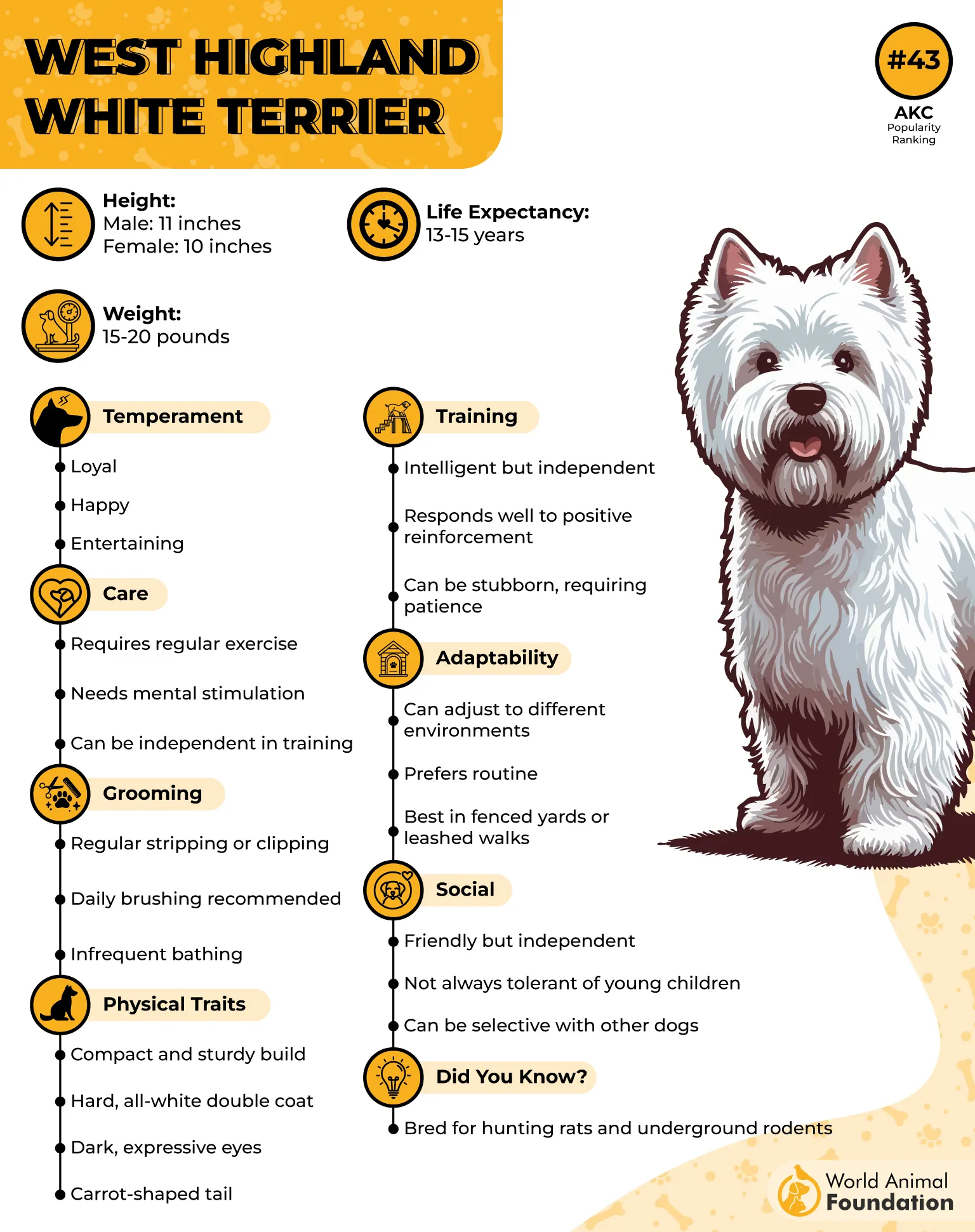
These adventure dogs have moderate energy levels and do best with a structured routine. A solid daily walk or hike is usually enough to keep them fit and happy. They’re also natural diggers, so don’t be surprised if they pause your hike to investigate a scent along the path!
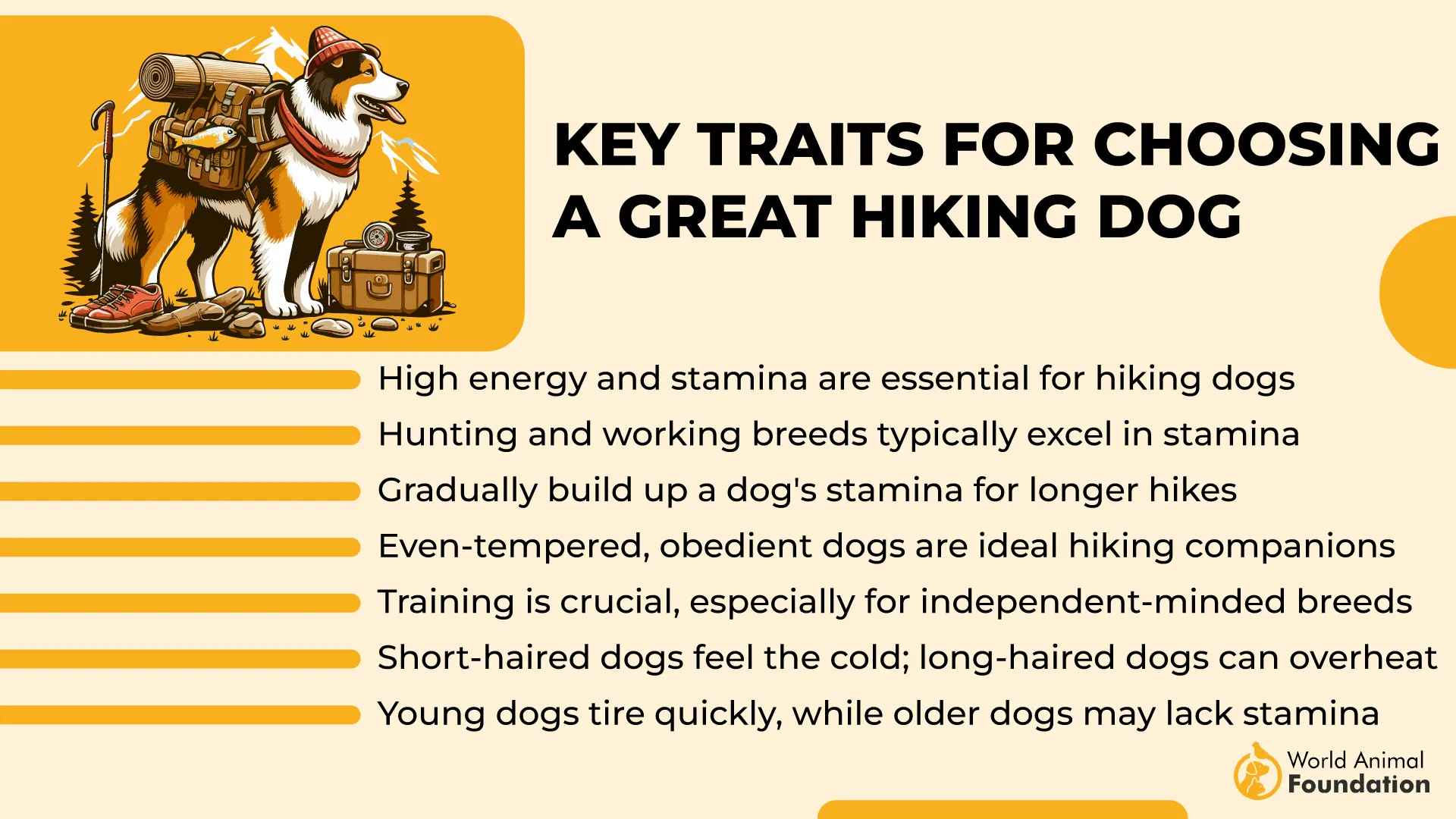
Their dense white coat needs regular brushing to avoid tangling, especially after a romp through muddy or wooded trails. And while Westies are generally sociable, they can be stubborn when it comes to training, so early recall practice is crucial before hitting off-leash areas.
Despite their compact size, Westies carry themselves with confidence and make excellent trail companions for hikers who appreciate a bold little dog with a big heart.
Fun Fact:
The Westie’s white coat was intentionally bred to make them easier to spot on hunts—no mistaking them for a fox or badger!
3. Yorkshire Terrier
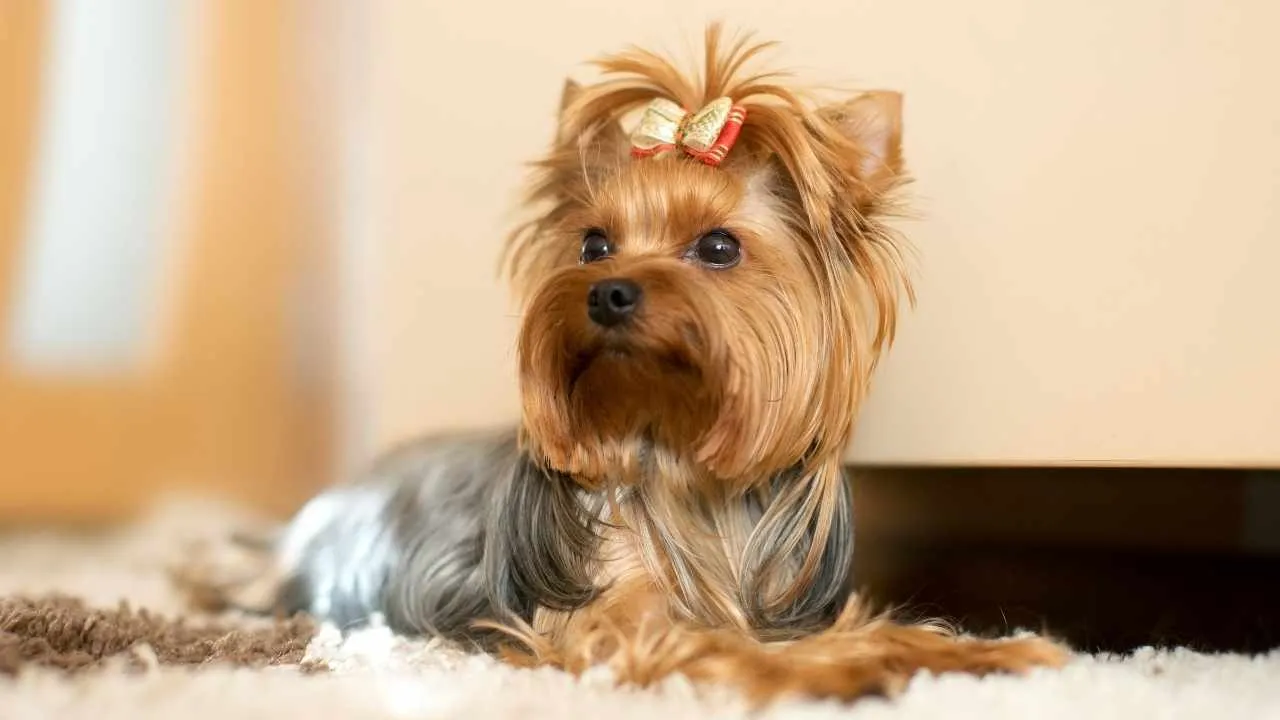
Small, stylish, and spirited—the Yorkshire Terrier may not scream “hiking dog,” but these feisty terriers are more capable than they look. Once used in 19th-century England to catch rats in textile mills, Yorkies possess both the stamina and boldness to take on much more than a walk around the block.
These pint-sized pups pack a confident personality and often believe they’re much bigger than they are. On the trail, they bring this same confidence to unfamiliar terrain, tackling roots, rocks, and uneven surfaces with surprising agility. They may even surprise you by outlasting larger, lazier breeds!
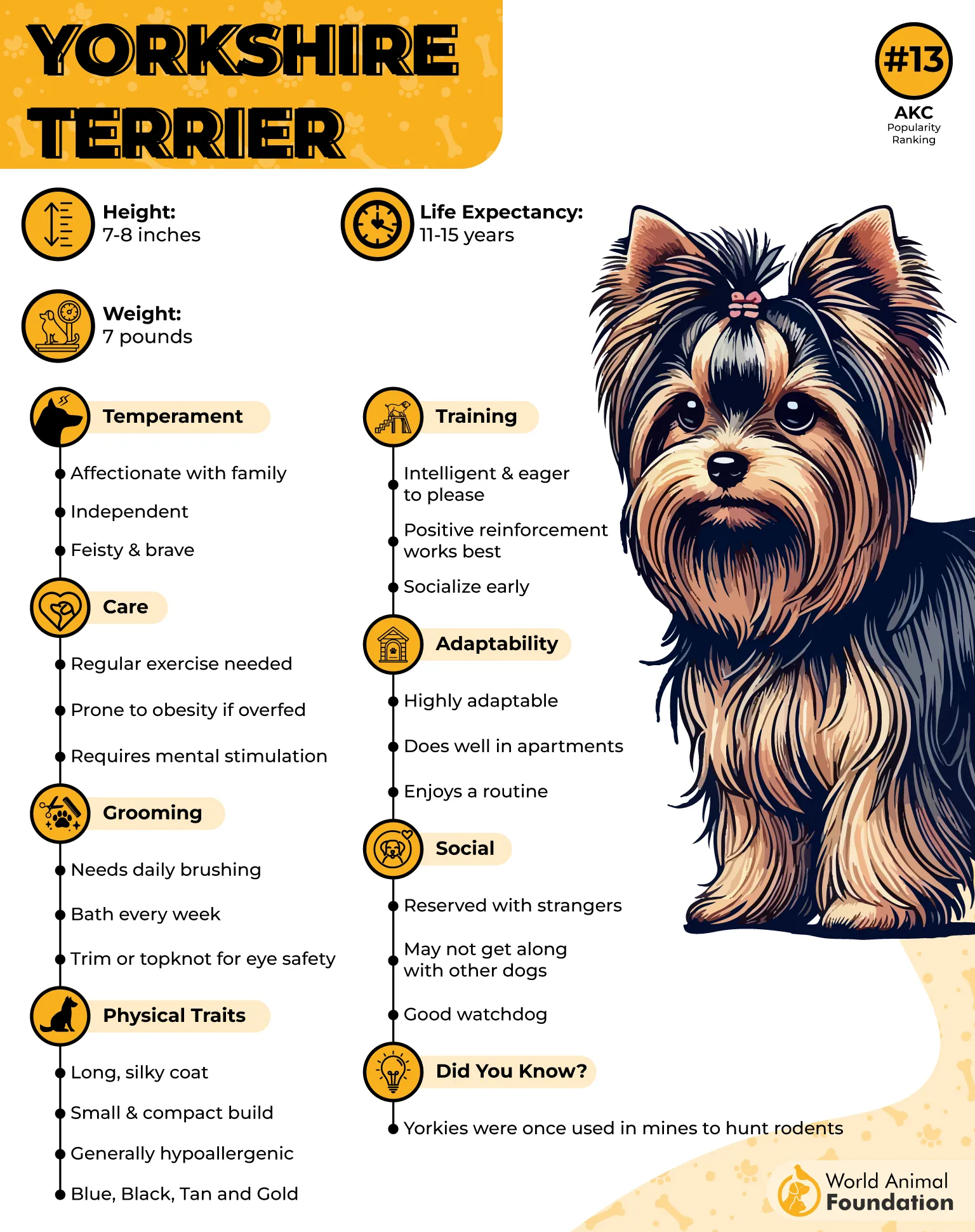
Yorkies have a high energy level that can be channeled into short but frequent hikes. Their small legs make long-distance treks a bit much, but they’re perfect companions for moderate trails or nature walks with frequent breaks. Keep them on a leash—Yorkies have a curious streak and a nose for trouble.
Because their long, silky hair can easily collect debris, many hiking Yorkies sport a shorter “puppy cut” to stay clean and cool. Don’t forget to protect them in chilly weather—those fine coats don’t offer much insulation against the elements.
Their social nature makes them a delight on the trail, and they usually enjoy meeting other people and dogs. Just be sure to offer praise and breaks—they love attention just as much as exercise.
Fun Fact:
Despite their posh reputation, Yorkshire Terriers descend from rugged working dogs, and still love a job to do.
4. Alaskan Klee Kai
The Alaskan Klee Kai might look like a miniature Husky, and that’s no accident. Developed in Alaska in the 1970s, this breed was created to be a smaller companion dog with all the energy and intelligence of its larger sled-pulling relatives. Unsurprisingly, it thrives in outdoor adventures like hiking.
These athletic little dogs have tons of energy to burn. They require consistent physical activity, and hiking offers the perfect outlet. Klee Kais love to climb, sprint, and explore, ideally in cool weather and off the beaten path (with a leash, of course). They’re known for their endurance and will eagerly accompany you on long, winding trails.
Though highly intelligent, they can be independent and even shy, especially with strangers. This means early socialization and patient training are essential for smooth outings. Their aloof nature may make them cautious around other dogs or hikers, but their loyalty to their owners is unmatched.
Klee Kais have a thick double coat that naturally repels dirt, making post-hike grooming relatively easy. That said, they shed seasonally, so expect fur to fly in spring and fall. Weekly brushing will help manage it, and they rarely require frequent baths.
This breed’s foxlike face, expressive eyes, and keen curiosity make them one of the most striking companions you’ll find on the trail—and one of the most eager.
Fun Fact:
The name “Klee Kai” means “small dog” in the Athabaskan language, a nod to the breed’s native Alaskan heritage.
5. Miniature Schnauzer
Curious, spirited, and undeniably dapper, the Miniature Schnauzer is one of the most trail-ready terrier breeds. Originally bred in Germany to chase rats and guard farms, this sturdy little dog is far more athletic than its stylish beard suggests.
They’re eager walkers, especially when adventure involves sniffing out new terrain. With their high energy and strong work ethic, Schnauzers relish a hike that challenges their body and mind.
Beyond their zest for movement, Schnauzers are alert and highly intelligent, which makes them great off-leash candidates, once properly trained.
They’re incredibly loyal, never straying far from their favorite humans. Though compact at 12–20 pounds, they’re surprisingly rugged, with a square build and wiry coat that holds up well to brush and undergrowth.
However, their terrier tenacity means they may bolt after small animals. A secure recall command is essential. And don’t forget their vocal side: that sharp bark, so helpful at home, might echo a little too much on the trail if not tempered.
Fun fact:
A Miniature Schnauzer named Atticus was the star of a memoir, Following Atticus, which documented their journey summiting all of New Hampshire’s 4,000-foot peaks twice.
6. Cairn Terrier
If you’re looking for a fearless trail companion packed into 15 pounds of grit and good humor, the Cairn Terrier is your dog.
According to the AKC, they were originally bred to root out foxes and vermin among the stone cairns of the Scottish Highlands, so these wiry-coated dynamos are in their element navigating rocky paths, steep inclines, and woodsy trails. They thrive on purpose and stimulation, and nothing lights up a Cairn like a hike with plenty to sniff.
What sets Cairns apart is their innate ruggedness. They’re sturdy without being bulky, and they often keep pace with larger breeds. Their independent streak means they might need firm training early on to manage that strong prey drive, but they respond well to consistent, positive reinforcement.
Social and generally cheerful, Cairns love hiking with a group—human or canine. Just don’t expect them to stay quiet if they catch wind of a critter.
Fun fact:
“Toto” from The Wizard of Oz was a Cairn Terrier, proving that even small dogs can travel epic roads (or yellow brick ones).
7. Miniature Poodle
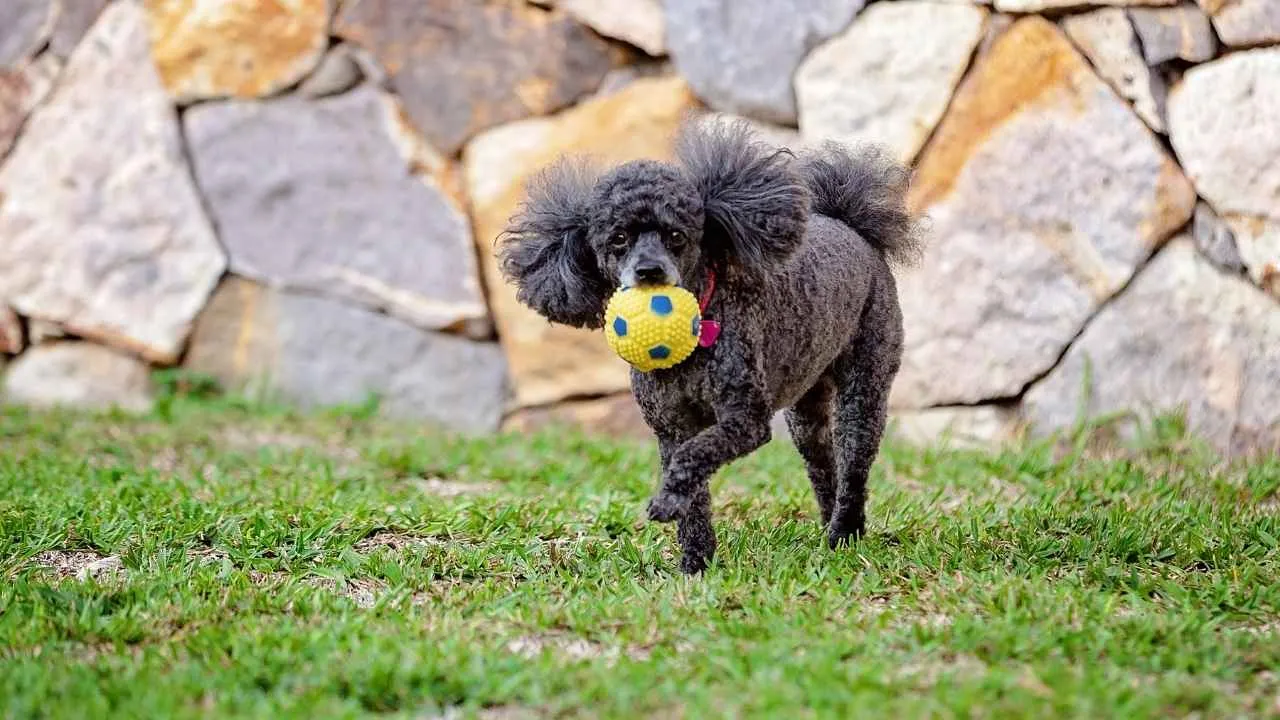
Don’t let the show-ring pomp fool you—the Miniature Poodle is a powerhouse in curls. Agile, intelligent, and incredibly trainable, these athletic dogs were originally bred for water retrieval. Their athleticism and love of movement make them exceptional trail companions, especially for owners who value responsiveness and good trail manners.
Miniature Poodles are like dancers in the forest: nimble, light-footed, and always aware. They excel on twisty terrain, respond beautifully to voice cues, and rarely stray far.
Their natural curiosity makes them enthusiastic explorers, and they love tasks, whether it’s climbing boulders or learning trail tricks. Plus, they’re less prone to overheating than their fluff might suggest.
Purina states that their high-maintenance coat is deceptive; it’s low-shedding but prone to matting, so post-hike grooming is essential. Mud, burrs, and underbrush don’t stand a chance against their dense curls if you’re diligent.
Fun fact:
Miniature Poodles were popular in 19th-century circuses because of their trainability, stamina, and showmanship—a trifecta that makes for a brilliant hiking buddy.
Conclusion
Small dog breeds can make exceptional hiking companions—don’t let their size fool you. Many are agile, athletic, and intelligent dogs with boundless energy and a gentle demeanor. Whether it’s a Rat Terrier darting up the trail or a Miniature Schnauzer keeping pace on rocky terrain, these pups offer big adventure in compact form.
While not every dog is born a trail expert, proper training, mental stimulation, and regular exercise can help most dogs thrive outdoors. Some may need shorter hikes due to spinal disk diseases, hip dysplasia, or weak legs, but others can handle rigorous active periods and even multi-day trips with the right doggy backpack and climbing harness.
Health and proper nutrition are key. A balanced diet and attention to grooming—especially for longer-coated breeds—ensure your dog stays in peak shape. It’s also important to remember that individual dogs vary, even within breeds.
Ultimately, a well-prepared pup—paired with thoughtful pacing, dog-friendly hotels, and plenty of rest in a cozy sleeping bag—can make for a great hiking buddy and a lifelong adventure companion.


